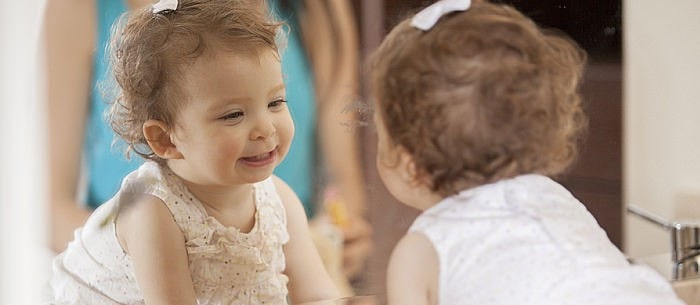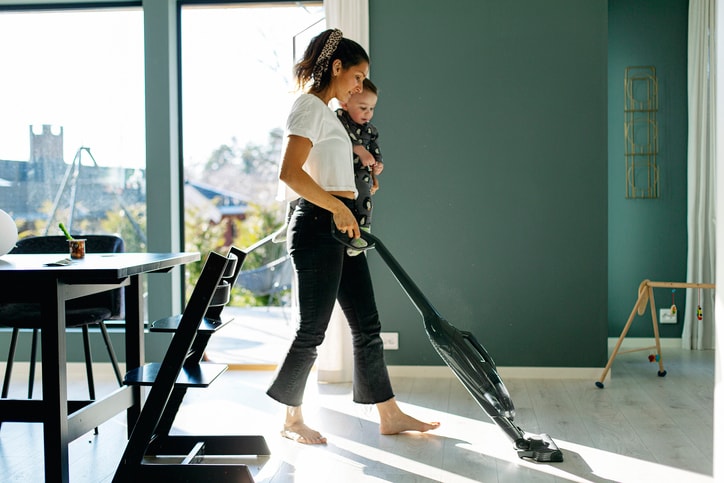As far as your 8- to 12-month-old baby is concerned, she’d be content if you never, ever left her sight! Her first year is full of social milestones, including the separation anxiety that strikes around 8 months when she’s also learning about herself as a person. Knowing what to expect during this time of rapid development will help you and your baby navigate through the ups and downs of social development at this age.
Dr. Jane Seok Jeng Lim, an assistant professor at Middle Tennessee State University’s Early Childhood Education program, reminds parents that milestone lists are simply guidelines. She says, “Each child is unique and not all infants at 8 to 12 months will exhibit the same characteristics. Some will develop faster and some slower.”
Check out the milestones your tot may experience at this age:
And read
our guide to developmental milestones for kids
.
Social Skills and Setbacks
According to the American Academy of Pediatrics, separation anxiety is really the first social milestone your baby will reach. Tough as it is, it’s normal and you will both get through it! She may start hiding her face in your chest when her caregiver approaches and reacting strongly when you leave for work. People she’s always been comfortable with may startle or frighten her. For now, when you leave, she doesn’t understand that you’re coming back. As she grows, she’ll realize you always return and the anxiety will subside. To ease your mind, ask your caregiver how long it takes your little one to calm down after you leave — more often than not, it’s mere minutes. Your baby might also show fear about other situations, such as going to a unfamiliar home, seeing a dog or car approach, or seeing a scary face on television. Reassure your baby that you’re there and try to soothe her throughout the new experience.
Your baby is also starting to mimic some of your behaviors, such as waving and talking on the phone. Lauren Krause, the chief of speech-language pathology at La Rabida Children’s Hospital in Chicago, says, “Communication and social interaction go hand in hand, so babies at this age are waving bye-bye and responding to being told ‘no’ — even if they don’t want to stop what they are doing, they should at least pause and show recognition of what they are being told.” She hears what you’re saying, but may test her limits by showing defiance and assertiveness.
Lastly, your little one is starting to become self-aware. When she looked in the mirror before, she likely didn’t know that the face staring back was her own. Now, she is recognizing that the baby in the mirror is herself, and she may touch her own face when she looks in the mirror. She’s also starting to show an understanding of some of her body parts and may extend an arm or a finger to show objects of interest.
How to Help
“At this age, it’s really important to provide a safe and trusting environment for your infant to interact with others,” says Dr. Lim. She suggests attending an infant-parent group once or twice a week, where adults and babies alike can get a dose of social interaction with others. In addition, scheduling playdates with other children is a great way to begin teaching your infant social skills.
Your 12-month-old baby will begin to want more attention from you at play time. While a toy might have entertained her before, now she might not be satisfied until you or your caregiver get on the floor and play with her. Though it may be difficult, Krause recommends limiting your infant’s screen time, whether TV or iPad, to less than an hour each day. She says, “Too much screen time can have negative effects on young children’s language, attention and social interactions.” Instead, encourage your tot to play with you or an older sibling, which helps her hone social skills as well as develop other vital cognitive and language milestones.
Even sitting in front of a mirror can provide wholesome play for your self-aware infant. Let her explore and see what happens when she raises an arm or moves her head. Watching your infant discover her reflection for the first time is fun for parents and only one of many remarkable social milestones to come!
For more on baby developments, check out this
Overview of Milestones From 8 to 12 Months.
Margie Mars is a happily married mother of eight and shockingly young Oma of three. She writes about parenting topics for several popular websites. Margie lives with her family in Oregon. Catch up with Margie on Facebook.
* This article is for general informational purposes only. It is not intended nor implied to be providing medical advice and is not a substitute for such advice. The reader should always consult a health care provider concerning any medical condition or treatment plan. Neither Care.com nor the author assumes any responsibility or liability with respect to use of any information contained herein.

